The Dancing Palanquins of Mandi Shivratri Festival #culturevulture
Festivals promote diversity, they bring neighbors into dialogue, they increase creativity, they offer opportunities for civic pride, they improve our general psychological well-being. In short, they make cities better places to live ~ David Binder
These festivals were even more important in mountains where the land was buried under snow for weeks and the only way to move out or to meet your distant relatives was a festival. With Kingdoms so large that it used to take months to travel from one end to another, festivals were a sure-shot way to get the house in order for the rulers as well.
One such festival is International Festival of Shivratri in my hometown, which lasts seven days and invites participants from all across the State.
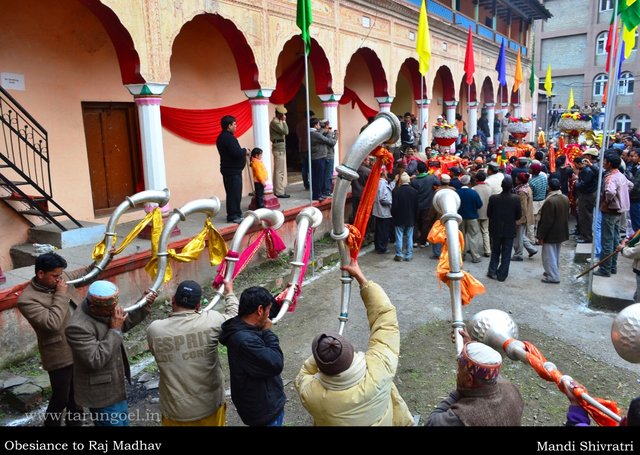
Homecoming of the Deities
The mountain Gods have arrived. Deities seated on their palanquins have traveled for weeks to meet the presiding deity of the erstwhile Kingdom of Mandi and thus started the annual festival of Shivratri in my hometown. The Rain God is seated inside a temple and is keeping a constant vigil on the proceedings of the festival.
!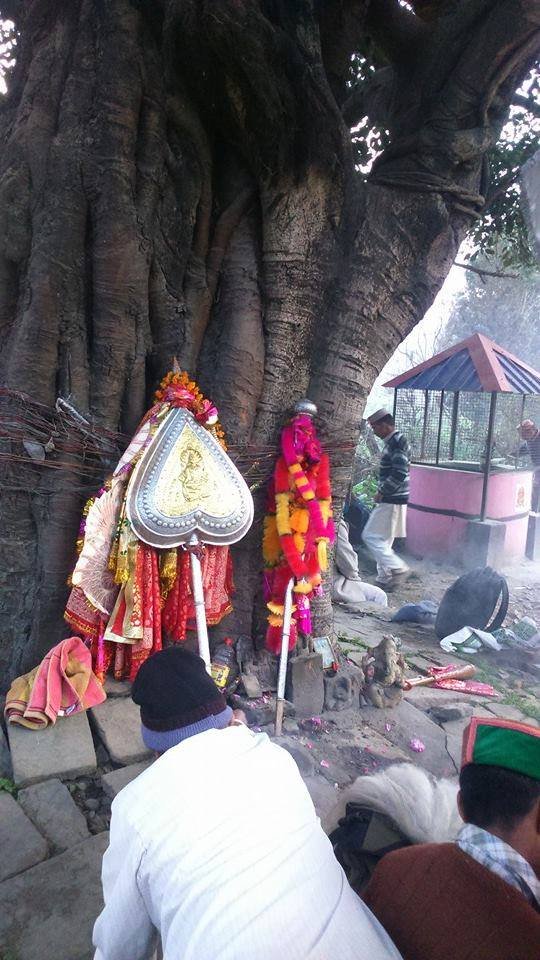 )
)
Insignia of the Presiding Deity of the Festival
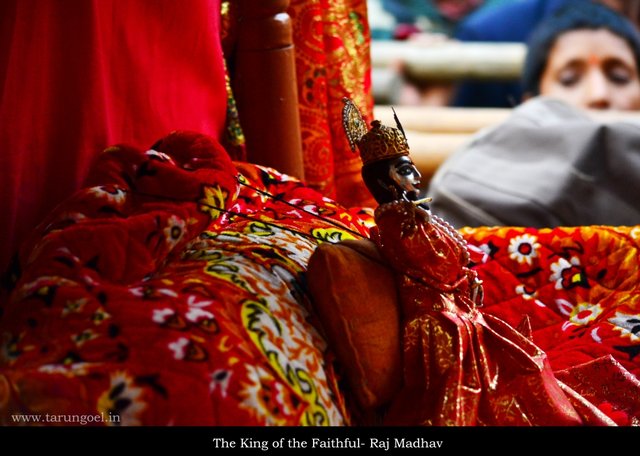
Reverence to the King - The Theocratic King of Mandi
And like every year, the summer heat has disappeared this year too as tiny droplets of water fall from the sky, as if the mountain Gods have collectively decided to relieve us all of the relentless summer heat.
Shivratri Festival of Mandi (my hometown) is unique in itself not because it is celebrated throughout the week but also because it brings people from the far flung areas of the State to congregate/trade/celebrate as a new crop festival is just around the corner.
What started ad a Royal Festival in 1664 A.D. has now become famous all across the world for its traditional flavor. As many as 200 deities are invited to take part in the week long festivities. Mostly these invitations are accepted and sometimes declined too because deities too pass their orders through their followers. It may sound superstitious to an outsider but for a mountain man the word of the Deity means a lot.
The seating orders, the order in which deities greet the Presiding Deity are all carried forward in the similar manner as it was started way before in 1664 A.D. Today huge trade fair and a Deity Festival are the two major segments of this festival and people bring their traditional trade items (made of wood, cloth, and steel) to the festival. Some parts where agriculture is still dependent on bulls and ox, animal trading too takes place.
But the biggest change that this festival has seen is abandoning the system of animal sacrifice, ordered by the High Court of Himachal Pradesh. This is going to be the first Shivratri in almost 350 years when no animal will be sacrificed on the altar of faith.
And that speaks about the beauty of this traditional festival. The festival still follows the age old traditions yet it respects the law of the land and has the tolerance to absorb the changes that time brings with itself.
In the end, I will take you to a visual treat. Enjoy this virtual journey with me as I walk through the dusty lanes of Mandi Shivratri.
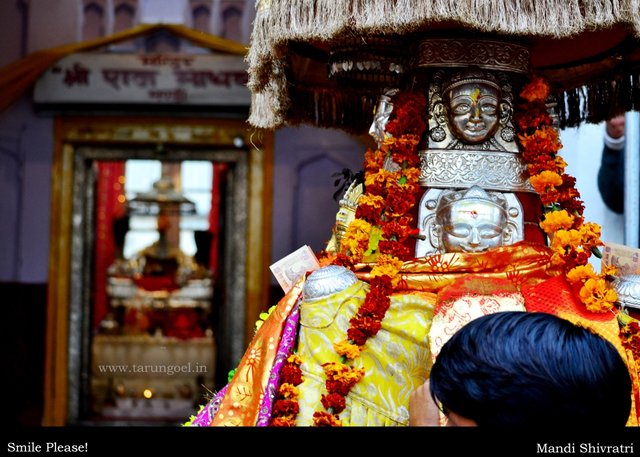
Deities meeting the King seated in his Royal Temple
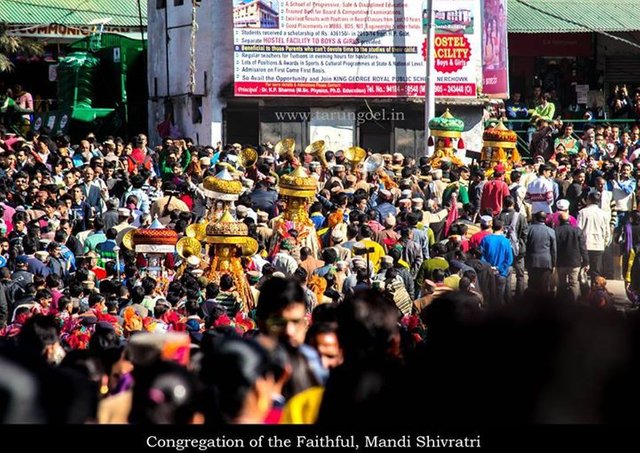
The Royal Affair - Everyone Going to the Festival Grounds | Deities on Palanquins and Followers on Foot
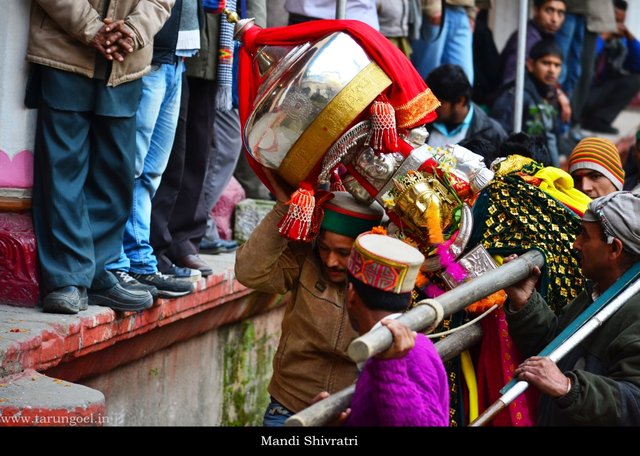
Dance of the Divine
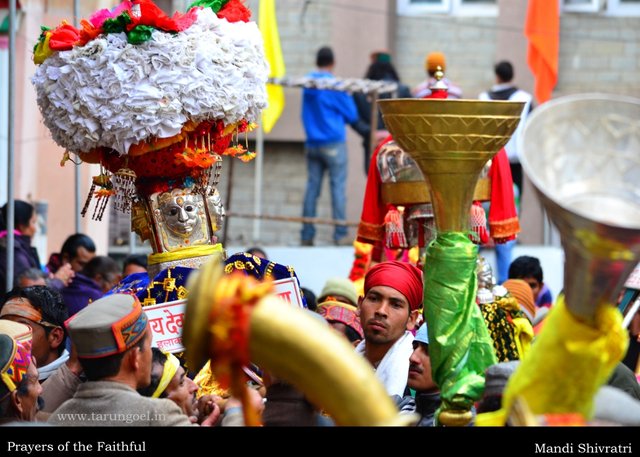
A Deity Seated on a Royal Palanquin
Lastly, this is how two deities meet and greet each other. The palanquins touch each other and everybody else revolves around in circles to control the heavy palanquin for the atmosphere is too overwhelming.
And like mere mortals, deities too find it a little difficult to control their emotions. :)
Thank you for taking part in this months #culturevulture challenge. Good Luck.
Nice and very interesting story. It must have been amazing ;)
nice one